Vintage clothing magnate has been raising eyebrows for 30 years
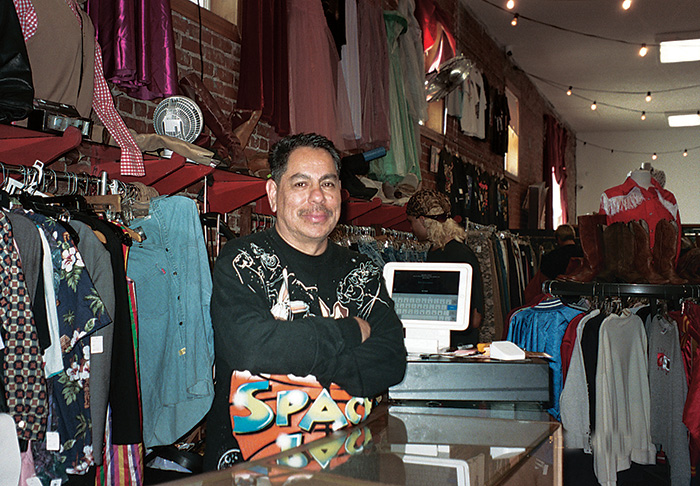
By Theresa Lin | special to the Courier
Every now and then, Albert Gonzales puts on one of his favorites, a double breasted pinstripe suit made in downtown Pomona in the 1940s, when men’s and women’s department stores occupied the stretch of west 2nd Street now known as Antique Row.
Gonzales has owned his vintage store, La Bomba, on this same street for the last 30 years. Over that time he’s expanded his business to Replay Vintage, going on its 15th year at The Packing House in Claremont, and two other storefronts of the same name in Los Feliz and Silver Lake.
He tells patrons to know what they’re wearing and dress for their expectations. “If you put a little effort into something,” he said, “you can raise an eyebrow, get a nice nod, even shock people.”
As he drives out on a Saturday night to the Cicada Club, a ballroom housed in the historic Art Deco Oviatt Building in Los Angeles’s Arts District, there is perhaps no one who knows what they are wearing quite like Gonzales. He is going swing dancing, something he’s enjoyed doing since swing’s late 1980s revival when he discovered others looking to create larger-than-life experiences for themselves through their dress. He admired how women pin curled their hair and how men accessorized with suspenders. He and his friends, just emerging from the punk scene and reveling in neo swing bands’ fusions of punk, rock, and ska, would watch bands like The Royal Crown Revue at now defunct The Derby. The venues smelled like clove cigarettes, he recalled fondly. “If they didn’t, you weren’t in the right place.”
Gonzales was raised by his grandmother Alice, a first-generation Mexican American, in Boyle Heights. He grew up surrounded by music; his grandmother loved Etta James and Billie Holiday, and aunts and uncles played their own varied favorites, everything from 1970s rock, to ‘80s soul, to reggae. Styles were constantly mixing, consequently his musical tastes weren’t tied to any one era. As a kid, he performed for his family and was often the center of their attention. His grandmother encouraged him to express himself. He felt he could take risks and be independent because he knew he would be loved unconditionally. “Love conquers all doubts,” Gonzales said.
He studied magazines, flipping through GQ and Interview. He especially admired Interview for its focus on creatives who expressed themselves boldly through art and fashion. Gonzales still owns an original 1990 copy with Johnny Depp on the cover, his olive skin and dark hair making him ethnically ambiguous. “He could be Italian or he could be Mexican, like me,” Gonzales said. He tried on samples of cologne before going out and memorized the details from the magazines — the appearance of a small hoop earring or the pairing of cut-off shorts with tall argyle socks. (Once disco was over, “you wouldn’t be caught dead in flared jeans,” he said.) He thrifted the styles he wanted to emulate and never felt without means.
He dated girls who were similarly drawn to music and fashion, “girls who wore Lauren perfume,” he said. In high school, he made the 1982 minimum wage of $3.35 an hour at a marketing center, asking mallgoers their opinions on things such as the comfort of their jeans. “Your opinion matters!” was the center’s logo. “You had to meet a quota, so you talked to people, and it got you out of a shyness,” he said. Paychecks went toward concerts, The Smiths, Siouxsie and the Banshees, and The Clash, at venues like the Hollywood Palladium. “I was always looking for cool things to do with cool people.”
This approach has proven critical to Gonzales’ success in the vintage clothing business. Many of the people he met through doing “cool things” have become integral collaborators. One night, while out swing dancing, he met his first business partner. Together, they went on to open a vintage store in Long Beach. Then, while attending a Social Distortion concert at The Glass House, he met a shop owner who put him in touch with Ed Tessier, owner of Arteco, the local development company that helped reinvigorate downtown Pomona in the early 1990s. With Tessier’s support, Gonzales opened La Bomba.
Whenever he had a suggestion, for more storefront windows for instance, Tessier was on board. “He would say, ‘I love it,’ or, ‘I got it,’” Gonzales said. Then, when the Tessiers renovated The Packing House in 2007, Gonzales opened the first of three Replay Vintage stores.
When the vintage market transitioned to an online model, Gonzales was ready. Sophia Amoruso of Nasty Gal, one of the first major online vintage retailers, approached him to source eyewear for her early campaigns. He later became the company’s official vintage eyewear wholesaler. (Nasty Gal sold for $20 million in 2016.) With his experience in the industry, he secured positions as the vintage wholesaler for national brands such as American Apparel, Urban Outfitters, and Free People, connections that kept him afloat during the pandemic.
Now he is thinking about the next generation. He has three nieces working in his stores. “I’m already thinking about a place down Antique Row for them,” he said. He is teaching them the trade as they come into their own. A nephew recently opened his own La Bomba in Riverside. Gonzales is thinking about unifying all of the stores under the La Bomba name. “I want to keep sourcing and let others handle the stores,” he said.
Though his role is changing, Gonzales remains as spirited as ever. “I always have a lot of ideas. I hope I never stop having ideas,” he said.
Theresa Lin earned her MFA in fiction from Columbia University, where she was awarded the De Alba Fellowship and taught undergraduate writing. The new resident of Claremont is eager to learn more about the city and its people.


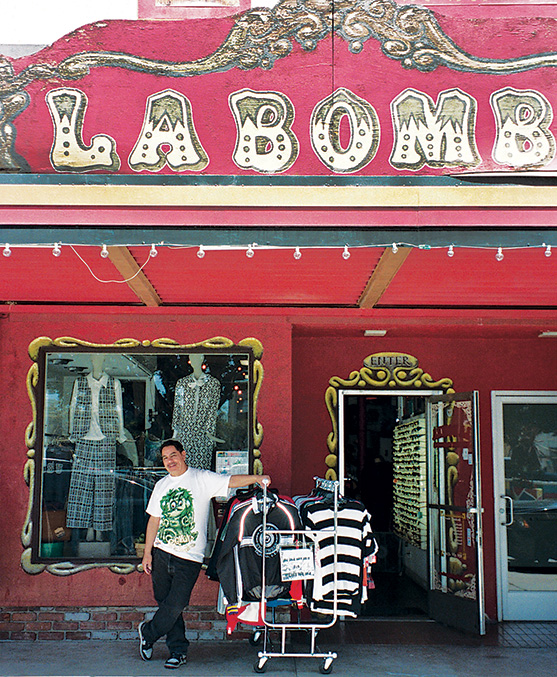
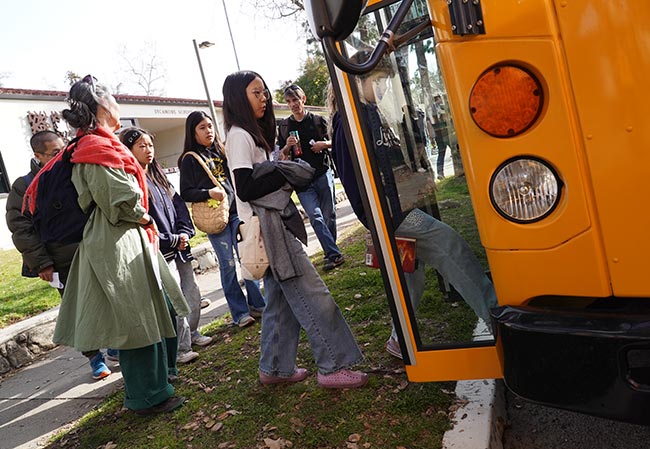
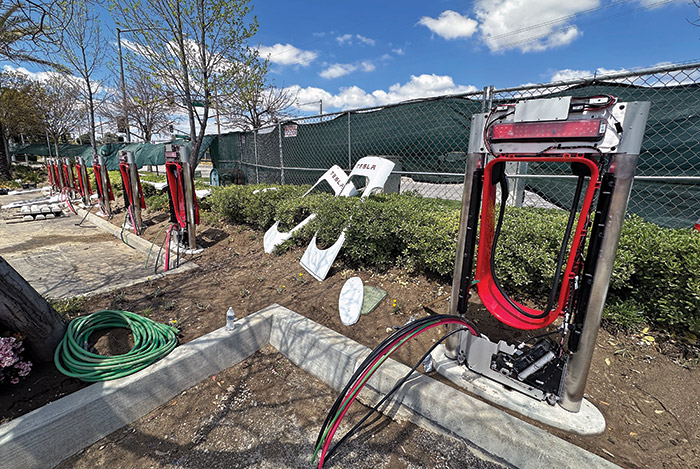
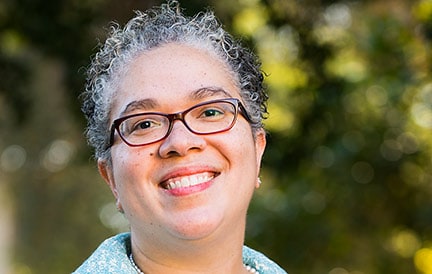
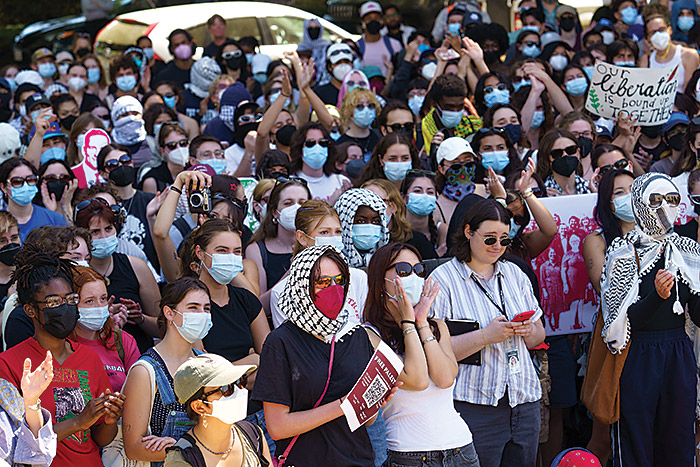

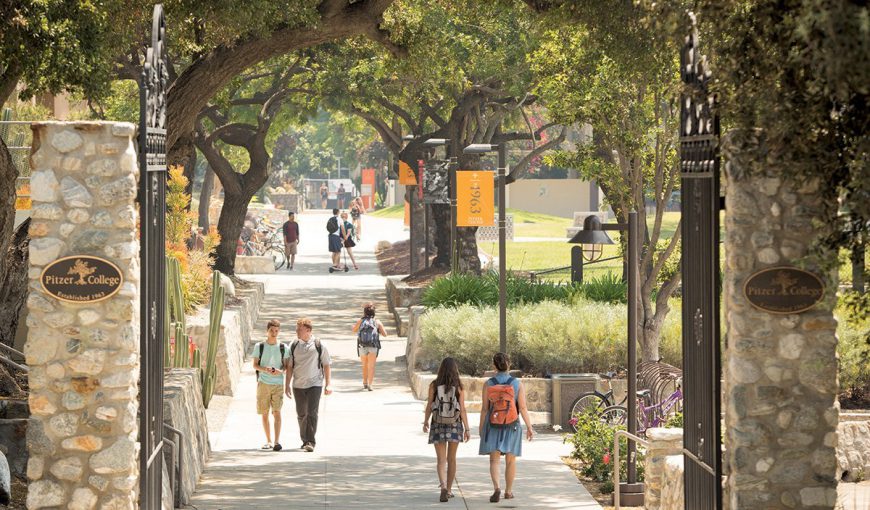

0 Comments